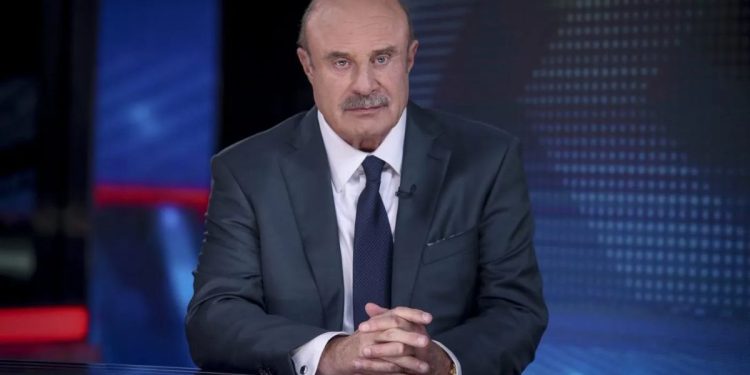On Thursday evening, CNN’s Abby Phillip and “Dr. Phil” McGraw differed on former President Trump’s hush money trial, with the anchor eventually claiming she doesn’t understand how he reached his conclusion.
Only a week after the announcement of the guilty verdict, McGraw immediately joined Phillip to discuss the details of the former president’s trial.
“You clearly support Trump, but you believe he should forgo the language of vengeance. If elected president, did he promise not to pursue that? Phillip inquired about their interview.
McGraw responded by saying he would sympathize with President Biden if he were in that scenario.
“Well, first of all, I’m sympathetic to what Trump has gone through in this particular trial, because I think it was not proper due process for him,” McGraw replied. “I would say the same thing if Biden or anyone else were involved in the process. So, I’d like to be clear.
Phillip then pressed the famed talk show therapist on why he believed Trump did not receive due process in the criminal case that led to his historic conviction.
“I mean, the procedures—we had reporters in there; I was there for much of it,” Phillip said. There was a judge who answered a lot of these questions,” Phillip explained. “Why do you believe there wasn’t a fair process for him?”
“I believe it’s a combination of various factors.” From a jury’s perspective, I believe they do. Again, let me be clear: I am not a lawyer.” He explained, “I view it from the perspective of the jury’s task to solve this puzzle.” “And I believe they heard some very prejudiced statements that had no bearing on resolving the case at hand.”
McGraw went on to say that having Trump’s former fixer, Michael Cohen, testify in the case as “someone that is considered to be an accomplice” is inappropriate.
Cohen, a key witness in the prosecution, paid porn star Stormy Daniels to stay quiet about her alleged affair with Trump before the 2016 presidential election. In 2018, Cohen pleaded guilty to federal campaign financing violations and received a three-year jail term.
Phillips answered, stating that accomplices frequently testify in later cases for their putative co-conspirators.
“That’s kind of how a lot of these prosecutions work,” she continued.
In response, McGraw asked Phillip to give instances where this was considered appropriate. She stated that prosecutors work on organized crime “all the time” and frequently rely on co-conspirators.
“I just don’t understand how you can say that because someone was not prosecuted and signed a nonprosecution agreement, that information or their testimony cannot be presented before the jury if they were a part of the alleged crime,” Phillip said.
The host asked McGraw if he was arguing Cohen should not have been allowed to testify in Trump’s trial.
“No, that is not what I am saying. I did exactly what I said. McGraw stated, “I believe the jury is predisposed to think, ‘Hey, here’s someone who is purportedly an accomplice who has said, I’m guilty of this.'” “That prejudices a jury about the person on trial for the same crime.”
Phillip disagreed, stating that Cohen, unlike Trump, did not face an indictment or a conviction for misrepresenting corporate records.
Phillip then attempted to refocus the topic on McGraw’s previous interview with Trump.










